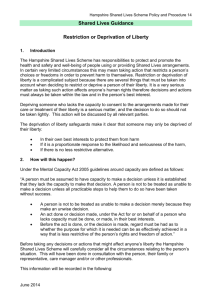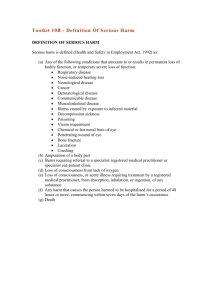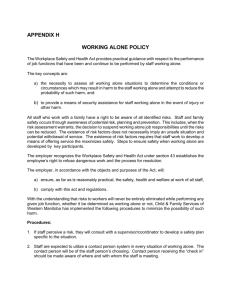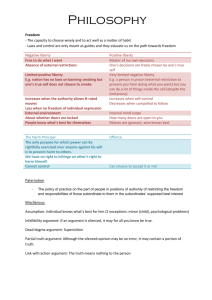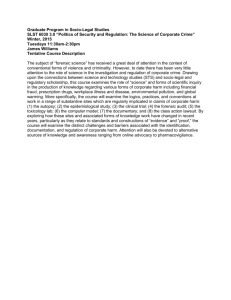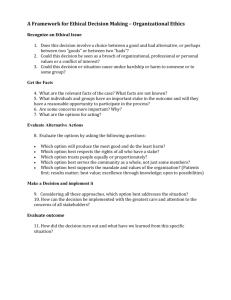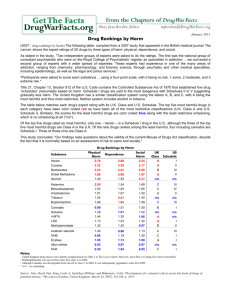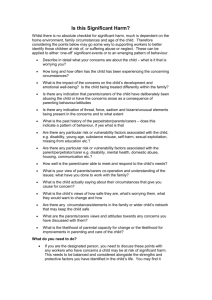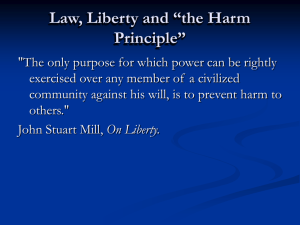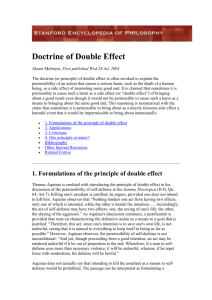Restriction of liberty
advertisement
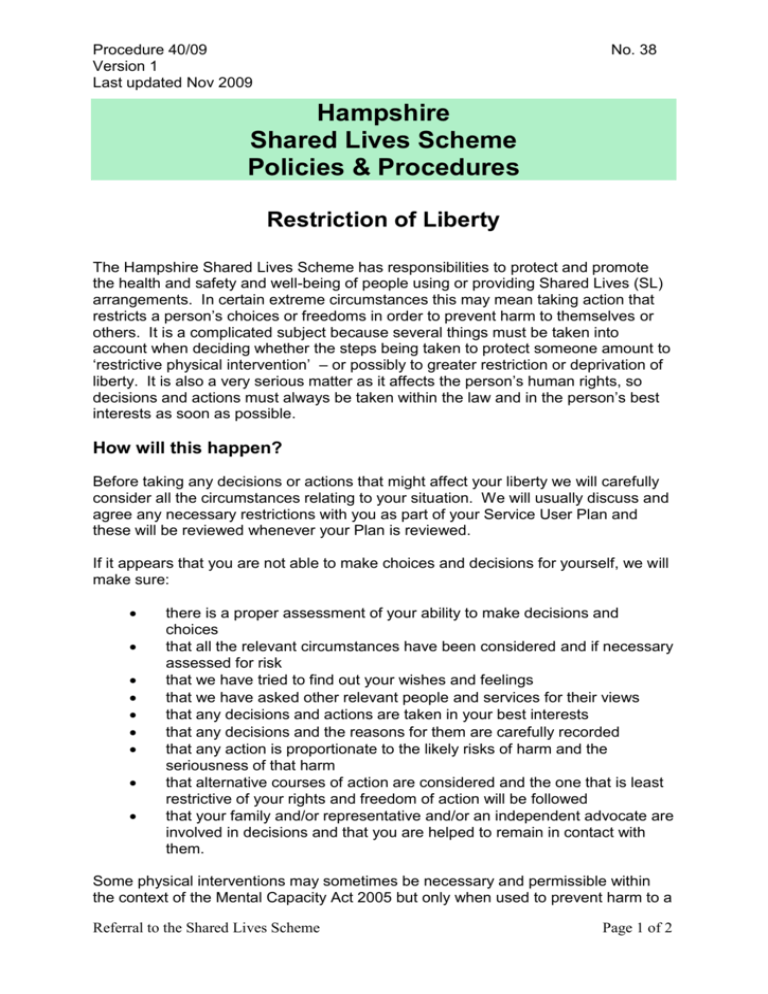
Procedure 40/09 Version 1 Last updated Nov 2009 No. 38 Hampshire Shared Lives Scheme Policies & Procedures Restriction of Liberty The Hampshire Shared Lives Scheme has responsibilities to protect and promote the health and safety and well-being of people using or providing Shared Lives (SL) arrangements. In certain extreme circumstances this may mean taking action that restricts a person’s choices or freedoms in order to prevent harm to themselves or others. It is a complicated subject because several things must be taken into account when deciding whether the steps being taken to protect someone amount to ‘restrictive physical intervention’ – or possibly to greater restriction or deprivation of liberty. It is also a very serious matter as it affects the person’s human rights, so decisions and actions must always be taken within the law and in the person’s best interests as soon as possible. How will this happen? Before taking any decisions or actions that might affect your liberty we will carefully consider all the circumstances relating to your situation. We will usually discuss and agree any necessary restrictions with you as part of your Service User Plan and these will be reviewed whenever your Plan is reviewed. If it appears that you are not able to make choices and decisions for yourself, we will make sure: there is a proper assessment of your ability to make decisions and choices that all the relevant circumstances have been considered and if necessary assessed for risk that we have tried to find out your wishes and feelings that we have asked other relevant people and services for their views that any decisions and actions are taken in your best interests that any decisions and the reasons for them are carefully recorded that any action is proportionate to the likely risks of harm and the seriousness of that harm that alternative courses of action are considered and the one that is least restrictive of your rights and freedom of action will be followed that your family and/or representative and/or an independent advocate are involved in decisions and that you are helped to remain in contact with them. Some physical interventions may sometimes be necessary and permissible within the context of the Mental Capacity Act 2005 but only when used to prevent harm to a Referral to the Shared Lives Scheme Page 1 of 2 Procedure 40/09 Version 1 Last updated Nov 2009 No. 38 person who is not able to make choices and decisions for themselves and when the actions taken are proportionate to the likelihood and seriousness of harm. (Being proportionate means that the minimum amount of force is used and for the shortest possible amount of time.) There is more information about the responsible and appropriate use of physical intervention in our policy on Restrictive Physical Intervention. The same policy also applies to situations where a person is acting in ways that challenge services or which may cause harm to other people, when under common law SL Carers and SL Workers would have a duty of care and can take action when necessary to prevent harm. If the physical interventions or restrictions happen frequently or on an ongoing basis or in many different forms this may go beyond what is permissible within the law. We will follow the Codes of Practice for the Mental Capacity Act 2005 to prevent this situation arising but, if it appears that further restriction or deprivation of your liberty may become necessary, this will only be done on an order from a court on a personal welfare matter. See these other policies and procedures and documents for further information on: Making choices and decisions Restrictive physical intervention Joint working and information sharing Risk assessment and risk management Health and safety Safeguarding against abuse or neglect Being missing from a SL arrangement Aggression towards SL Carers and workers in the service Record keeping Standards of conduct and practice Complaints and concerns Whistleblowing Service User Plan Individual planning, monitoring and review Referral to the Shared Lives Scheme Page 2 of 2
